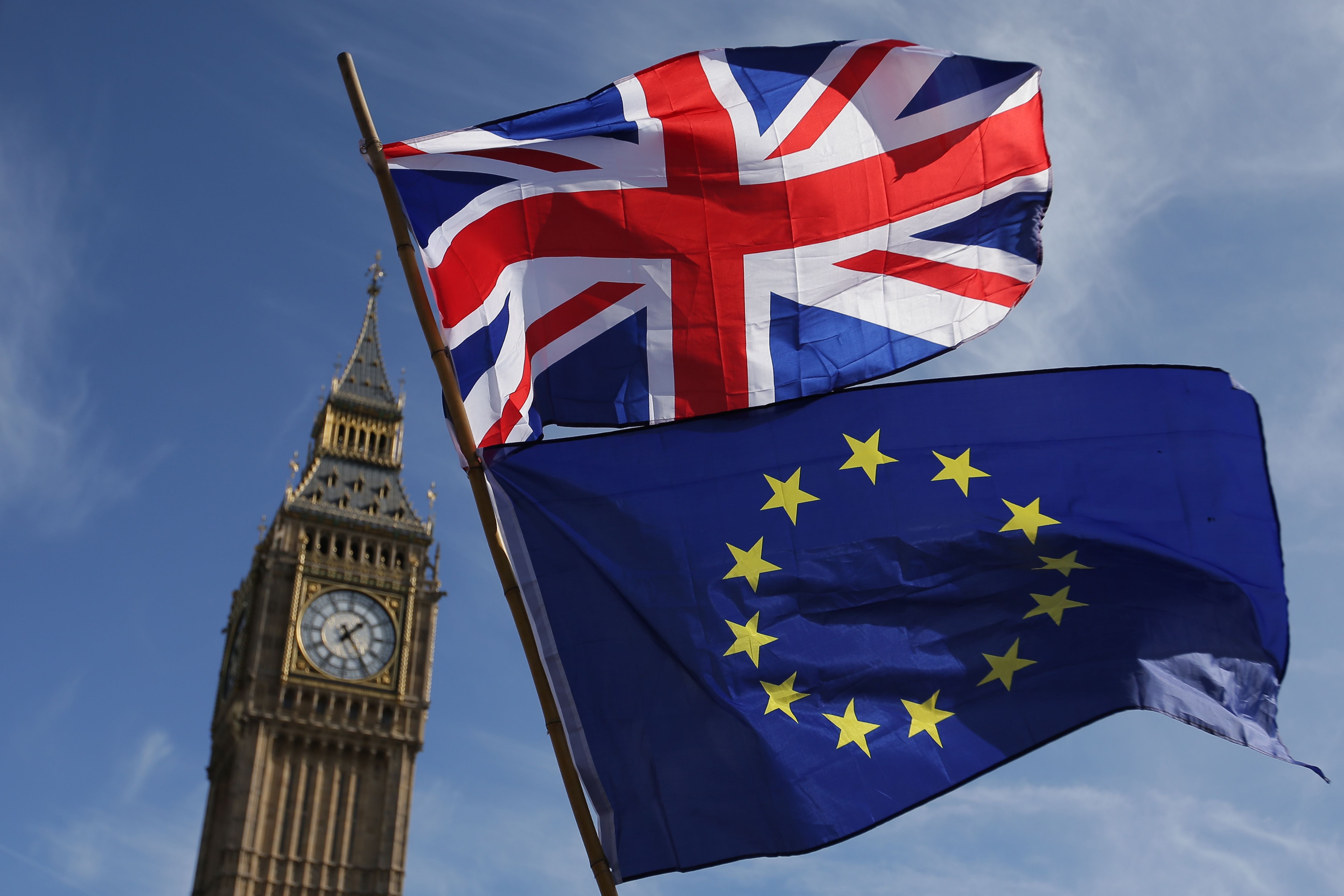The next generation will not see Brexit the way we do
There will be different priorities for those that come after us, writes Mary Dejevsky


As with Ursula von der Leyen quoting TS Eliot, so in the UK parliament. When Brexit was finally completed, with the signing of the Christmas Eve agreement between the UK and Brussels and then its passage into UK law via the EU (Future Relationship) Act, there was both an end and a beginning.
After almost half a century as a member of what was to become the European Union, the United Kingdom of Great Britain and Northern Ireland enters 2021 as – in the words of Boris Johnson – “an independent coastal state”.
The final departure, it has to be said, was something of an anticlimax. For all the prime minister’s efforts to wrap his every appearance in many national flags, there was little sense of either the signing ceremony for the Trade and Cooperation Agreement or the 30 December parliamentary debates being great national moments.
Partly, that reflected the particular conditions of the coronavirus pandemic. The parliamentary benches were only sparsely populated; many MPs and peers made virtual appearances over screens; proceedings were, as many complained, rushed to meet the end of day, end of year, deadline. Nor were there any of the raucous banner-waving, bell-ringing crowds that had jostled for space outside parliament during the inconclusive votes earlier in the year. All was quiet on the Westminster front.
The drama, such as it had been, was over. Few speakers in parliament this week even mentioned the profound historic significance of what was going on. The leader of the Scottish Nationalists in the Commons, Ian Blackford, offered a brief review of independent Scotland from the Hanseatic League on; the veteran Eurosceptic, Bill Cash, compared Boris Johnson to Alexander the Great, and a smattering of peers opened their three-minute contributions with a regretful or celebratory nod to the end of UK’s latest European era. But there was not much more.
Almost as strange as this neglect of the big picture, however, was the emergence of what might be seen as a much smaller picture as a leitmotif of the continued resistance to Brexit. This reached its height in the House of Lords debate where, one after another, speakers lamented not just the country’s departure from the EU – which they generally accepted – but its departure from the EU’s Erasmus student exchange programme, which they certainly did not. “Short-sighted” and “mean-spirited” were just some of the descriptions used.
The hue and cry about Erasmus – in fact, for all its the scholarly resonance of the name, an acronym for European Region Action Scheme for the Mobility of University Students – began after the EU’s negotiator, Michel Barnier, noted that it was the UK’s decision to leave the programme and that it was something the EU regretted. This disclosure unleashed a veritable torrent of chattering-class fury, as politicians, academics and commentators not only attacked the decision, but pointed out that it represented another prime ministerial breach of faith. Had he not given his word that the programme would to on?
I have to admit to some surprise that, of all the myriad points in the Trade and Cooperation Agreement, it was this one omission that drew the fiercest flak, with the possible exception of fishing. On reflection, though, it can be understood.
A small reason might be the belief, especially among academics, that, just perhaps, if enough people object loudly enough, the decision could be reversed. Especially as it appears to be mostly about money and there is nothing, in principle, that excludes non-members of the EU from participating if they stump up the necessary contribution.
But it is all about money? This is the nub of the question, and while I tend to think it is – the UK has, after all, chosen to maintain its participation in the Horizon academic research programme - many discern more malign reasons. One of the points made by its (mainly Leave) detractors is that Erasmus was a bonus for already advantaged young people or – to put it less politely – something of a gravy-train for the children of the middle classes. One that enabled them to spend a year (or less) abroad at someone else’s expense, so embellishing their already well-padded CVs.
The many advocates of the Erasmus scheme dispute this, saying that the programme enabled many to go abroad for the first time, and that there were special provisions for the disadvantaged and young people with disabilities that will now be lost. To the government’s argument that it is setting up a substitute – the cleverly-named Turing scheme, designed for study at universities worldwide – they say that Erasmus is established, well-organised and well-funded, while the proposed Turing programme risks being be none of these. And they may be right.
But the perception of elitism – justified or not – is only one liability for the continuation of Erasmus in post-Brexit, levelling-up UK. The much bigger liability, which is much harder to counter, is that Erasmus has always, at heart, been about forming young Europeans. It aims to introduce students and others to their counterparts elsewhere in Europe and, in so doing, to foster mutual understanding, cultural sensitivity and a sense of belonging to Europe.
This, Remainers could say, is the real reason why Boris Johnson and Leavers generally will shed few tears for the closing of the Erasmus programme to UK students. And, again, they may be right.
I find myself caught. As a linguist, who spent an undergraduate year abroad (though before Erasmus) and has lived and worked in several countries, I regret the UK’s withdrawal from this sort of mind-broadening programme. Looking ahead, though – and it pains me to write this – I wonder whether the UK in future would be best served by a scheme so focused on encouraging its best-educated young people to think of themselves as Europeans.
For the best part of 50 years, and more if you count the UK’s failed attempts to join the Common Market, the main focus of this country’s foreign policy has been on Europe, and specifically the EU. A familiarity with Europe (though, alas, not necessarily the ability to speak its languages) has been seen as a career enhancement in many fields, starting with diplomacy. Distress over the Brexit vote was nowhere deeper than in the Foreign Office or academia. And I share that regret, as someone from a generation and a class whose youth and whole professional life have in a sense been defined by Europe.
With Brexit now “done”, however, it is evident that the UK’s future is unlikely to look like its recent past. “Global Britain” may be no more than a Brexiteer catchphrase for a foreign policy no longer centred on the EU, and post-Brexit Britain may in fact turn out to be almost the opposite – more isolationist, inward-looking, and marooned between the Europe and the US. Either way, though, the UK has left the EU and it could well be that our, my, generation of British Europeans could soon look like an exception, a one-off.
That is partly, but not only, because of the Brexit vote that showed a majority of UK voters had still not bought into the European project after more than 40 years. It is also because the next and subsequent generations of UK students will have different horizons from those of the Europe generation, as – very probably – will be their priorities when they become formers of the UK’s foreign policy. Think of the way the killing of George Floyd in the US reverberated over here.
Ultimately, maybe, the UK’s departure from the European Union should be seen less as either a beginning or an end than a continuation, a picking up from where this country left off, before it started trying to join Europe in the late 1950s and 1960s. The Erasmus programme may have helped to create a British European generation; it could not do more.



Join our commenting forum
Join thought-provoking conversations, follow other Independent readers and see their replies
Comments